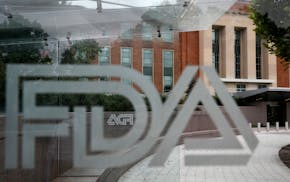A federal bank regulator has given TCF Financial Corp. the all-clear signal after efforts to improve its monitoring of suspicious transactions.
The Wayzata-based lender said Monday that the Office of the Comptroller of the Currency (OCC) has lifted a consent order that the bank has been operating under since 2010.
TCF Chairman and CEO William Cooper said in a statement that the bank has made "significant investments to create a best-in-class [Bank Secrecy Act] program."
TCF paid a $10 million fine earlier this year for lapses in monitoring suspicious transactions, including potential terrorist financing. The OCC said TCF had botched the mandatory reports that banks are required to make noting questionable dealings, such as wire transfers where the source and purpose of the funds are unknown.
The Bank Secrecy Act (BSA) requires financial institutions to make sure illegal money doesn't flow through their organization, and regulators have stepped up enforcement. Banks are required to file suspicious-activity reports with the Financial Crimes Enforcement Network, or FinCEN, an arm of the U.S. Treasury.
The bank has said it thoroughly examined all its accounts and didn't find evidence of terrorism financing.
Bank spokesman Mark Goldman said during an interview on Monday that the bank has strengthened its BSA compliance over the last two years, including installing new software systems to flag unusual transactions.
The bank also has hired an experienced BSA officer, significantly expanded staffing around BSA compliance and enhanced training for employees who deal with customer information, Goldman said.
"Everybody who handles customer information plays a critical role in weeding out potential suspicious activity," Goldman said.
Between November 2008 and July 2010, TCF was late filing 2,357 reports of suspicious transactions, according to the consent order from the OCC.
The filing went on to say that in 13 cases, involving about $7.2 million, the bank failed to properly file reports "related to transactions indicative of possible terrorist financing."
The reports to law enforcement were of "poor quality," it said. In some cases the bank didn't check the "terrorist financing" box on reports when the narrative section referenced possible terrorist activity, and in other cases the narrative didn't make clear what sort of suspicious activity had taken place.
Jennifer Bjorhus • 612-673-4683

Senate passes bill forcing TikTok's parent company to sell or face ban, sends to Biden for signature
USPS commits to rerouting Reno-area mail despite bipartisan pushback and mail ballot concerns

